GSDR Dialogues for Sustainability
The GSDR Dialogues for Sustainability offer a hands-on exchange format for practitioners of the 2030 Agenda for Sustainable Development including representatives of governments, academia, social society and business.
„How can we make sure that different policies for reaching the SDGs converge and don’t compete, and build on the dynamics of climate policy?”
Imme Scholz
The dialogue format will focus on questions of implementing the recommendations of the Global Sustainable Development Report (GSDR). How can the GSDR framework be used to develop concrete action in national and local contexts and thereby accelerate progress toward the implementation of sustainable solutions? How can the four levers identified as governance, economy and finance, science and technology as well as individual and collective action be applied, thereby minimizing possible trade-offs and maximizing synergies?
These questions will be applied to one special topic per session. For this we invite special guests to briefly share their insights and perspectives. Ignited by this, we give room for an in-depth discussion with all participants, with the opportunity to put your questions on the table. The exchange shall contribute to a better understanding of the variety of topics, policies, strategies, technologies, approaches and different perspectives related to the GSDR and the pathway to a sustainable future. We hope this format will inspire and motivate meaningful follow-up in the Decade of Action and Delivery of the 2030 Agenda.
Topics are centered around operationalizing the key messages of the Global Sustainable Development Report (GSDR) 2019 as well as sharing research activities of the new Independent Group of Scientists working on the GSDR 2023. More importantly, topics addressed during the Dialogues for Sustainability tackle crucial challenges and urgent questions that we must face in order to co-create the future we want.
“Everything that has happened so far has been focused in countries that have the financial means to carry out this deployment. But as we move along, international cooperation will be needed, to provide the support particularly to the Least Developed Countries and the small island development states.”
Diala Hawila
63
Participants
Total number of all participants in all events in 2021
„Understanding the lessons from our past experiences is really important for building better policies going forward”
Jennifer Clapp
The GSDR Dialogues for Sustainability are connected to the GSDR Community of Practice, which promotes the translation of the global to the local and shares examples and good practices of operationalization of the GSDR results.
“Food and agriculture is a big part of tackling climate change, so there is international appetite both directly on food issues as well as from the climate angle”
William G. Moseley
Speakers
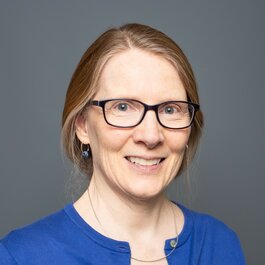
Jennifer Clapp
Jennifer Clapp
Jennifer Clapp is a Canada Research Chair in Global Food Security and Sustainability and Professor in the School of Environment, Resources and Sustainability at the University of Waterloo, Canada. She has published widely on the global governance of problems that arise at the intersection of the global economy, food security and food systems, and the natural environment. Her recent research projects have examined the political economy of financial actors in the global food system, the politics of trade and food security, and corporate concentration in the global food system. Her most recent books include Food, 3rd Edition (Polity, 2020), Speculative Harvests: Financialization, Food, and Agriculture (Fernwood Press, 2018), Hunger in the Balance: The New Politics of International Food Aid (Cornell University Press, 2012), Paths to a Green World: The Political Economy of the Global Environment, 2nd Edition (MIT Press, 2011), and Corporate Power in Global Agrifood Governance (MIT Press, 2009). Professor Clapp is a member of the Steering Committee of the High-Level Panel of Experts on Food Security and Nutrition (HLPE) of the Committee on World Food Security (CFS) and a member of the International Panel of Experts on Sustainable Food Systems (IPES-Food). Her interdisciplinary research has been recognized with numerous prestigious awards, including: election as a Fellow of the Royal Society of Canada, a Killam Research Fellowship from the Canada Council for the Arts; the Distinguished Scholar award of the Environmental Studies Section of the International Studies Association; the Innis-Gérin Medal for contributions to Social Sciences from the Royal Society of Canada; a Pierre Elliott Trudeau Foundation Fellowship; and the Canadian Association for Food Studies Award for Excellence in Research.
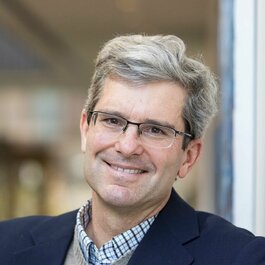
William G. Moseley
William G. Moseley
William G. Moseley is DeWitt Wallace Professor of Geography, and Director of the Food, Agriculture & Society Program, at Macalester College in Saint Paul, MN USA. His research interests include tropical agriculture, food security, and development policy. He is the author of more than 100 peer-reviewed articles and books chapters, as well as eight books, including: Africa’s Green Revolution: Critical Perspectives on New Agricultural Technologies and Systems (2016); Land Reform in South Africa: An Uneven Transformation (2015); and Hanging by a Thread: Cotton, Globalization and Poverty in Africa (2008). His fieldwork has been funded by the U.S. National Science Foundation and the Fulbright-Hays program. He currently serves as President Elect of the Mande Studies Association, a member of the steering committee for the High Level Panel of Experts (HLPE) of the UN Committee on World Food Security (CFS) and sits on the editorial boards for the African Studies Review, the African Geographical Review, the Geographical Review, the Canadian Journal of Development Studies, and the AAG Review of Books. He previously served as associate editor of Food Policy, editor of the African Geographical Review, co-chair of the 2016 African Studies Association annual meeting, a national councilor to the American Association of Geographers, and as chair of the political ecology specialty group. In 2013 he won the Media award, and in 2016 the Kwadwo Konadu-Agyemang Distinguished Africa Scholar Award, both from the American Association of Geographers. His essays for the popular press have appeared in outlets such as the New York Times, Washington Post and Al jazeera English. Outside of academia, he has worked for organizations such as the Save the Children Fund (UK), the World Bank, the International Livestock Research Institute, and the US Peace Corps.

Diala Hawila
Diala Hawila
Diala Hawila is a Programme Officer on Policy Advice in the Knowledge, Policy and Finance Centre of IRENA, based in Abu Dhabi. She has managed, coordinated and co-authored reports related to renewable energy policies and benefits including the series Auctions, Policies in a Time of Transition: Heating and Cooling, and Leveraging Local Capacity, among others.
Based on the findings of the reports, she provides on-the-ground support to countries in capacity building workshops on the design of policies and targets. She also coordinates policy events to engage policy makers in related discussions.
Prior to that, she worked at PricewaterhouseCoopers on supporting the development of policies and procedures for government entities in Abu Dhabi. She holds a Master’s degree in Systems Engineering and Management focusing on Renewable Energy Policy.
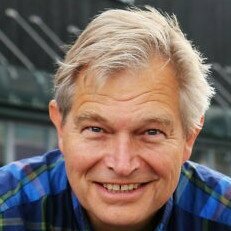
Ivar Andreas Baste
Ivar Andreas Baste
Ivar Andreas Baste is the co-Chair for the Future of GEO process Steering Committee and a senior advisor at the Norwegian Environment Agency. He has also served as a member of the IPBES Bureau, Director of the Environment Management Group, UNEP Chief of Scientific Assessments, and Deputy Director General in the Norwegian Ministry of Environment. Ivar has contributed to various assessments including for IPBES, UNEP GEO, Integrated Assessment of Black Carbon and Tropospheric Ozone, Regular Process for Global Reporting and Assessments of the State of the Marine Environment, International Assessment of Agricultural Science & Technology for Development, Millennium Ecosystem Assessment (MA), and Global Biodiversity Assessment (GA).
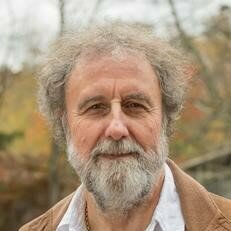
Robert Watson
Robert Watson
Sir Robert Watson is one of the most influential environmental scientists worldwide. In addition to Chairing or Co-Chairing numerous national and international assessments, he has served as a Senior Scientific Advisor in the Office of Science and Technology Policy in the White House, the World Bank, and UK Defra. He has received many awards for his contributions to science, including the Asahi Glass Blue Planet Prize and the UN Champion of the World for Science and Innovation. Some of his past Chair and co-Chair positions on assessments include the IPCC 3rd Assessment Report, IPCC WGII 2nd Assessment Report, IPBES, Millennium Ecosystem Assessment (MA), International Assessment of Agricultural Science & Technology for Development, Global Biodiversity Assessment (GA), multiple International Scientific Assessments of Stratospheric Ozone, and the UK National Ecosystem Assessment.
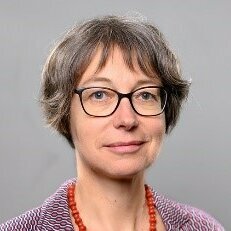
Imme Scholz
Imme Scholz
Imme Scholz is Deputy Director of the German Development Institute (DIE) and Honorary Professor of the Centre for Ethics and Responsibility at Hochschule Bonn-Rhein-Sieg, Germany. Imme studied sociology at the Freie Universität Berlin. She joined DIE as a researcher in 1992 and worked on trade regulations for environmental requirements to products and production processes. With her PhD she tried to understand the limited effect of certification schemes for sustainable forestry on the sustainability of the timber trade in the Brazilian Amazon region. From 1999-2002 she was an environmental policy advisor in the Amazon region of Brazil on behalf of German development cooperation (GIZ GmbH), as part of a large pilot programme for the protection of Brazilian rainforests. On her return to DIE she took over the newly founded environmental department where she created a research group on adaptation to climate change. In 2009 she was appointed as deputy director of the Institute. Imme is very active at the science-policy interface, within the T20, the European Think Tanks Group and in policy dialogues with China on sustainable development. She is deputy chair of the German Sustainability Council, a member of the German Bioeconomy Council and of the German Committee Future Earth (DKN Future Earth).
Imme Scholz - Deutsches Institut für Entwicklungspolitik (die-gdi.de)
“We have to transform our relationship with nature and the next 10 years are crucial. This will involve a fundamental change in the technological, economic and social organization of society, including world-views, norms, values and governance”
Robert Watson
Topics
In this talk, Jennifer Clapp and William G. Moseley made the case that it is time for to widen understandings of food security to incorporate agency and sustainability, elements not currently captured in the commonly referenced four pillars of availability, access, utilization and stability. They showed that the impact of widening food system inequalities as well as a growing awareness of the intricate connections between ecological systems and food systems make it imperative that these additional dimensions be incorporated into the concept, especially in frameworks that shape policy. “The industrial food production system has its problems, it is good at producing a lot of stuff but not good at addressing hunger”, reflected William G. Moseley.
The discussion, moderated by Astra Bonini (UNDESA), showed that a bold transformation of food systems is needed. Jennifer Clapp concluded, "it is important that we recognize the need for a radical transformation of food systems – including upholding right to food and building sustainable food systems. Critical policy shifts are needed to support more sustainable food systems to improve prospects for meeting SDG2".
Presentation: "Food Security and Nutrition: Arguments for a six dimensional food security frameworK"
Moderated by Stephanie Rambler, UNDESA, the session focused on pathways towards reaching the 1,5°C goal through a transformation of the global energy landscape. Diala Hawila, co-author of the report, presented the key-findings of IRENA’s World Energy Transitions Outlook. Diala stressed that "This effort of the just and inclusive transition goes far beyond technology. It requires a fundamental transformation of our economies and energy system and will deeply impact our societies." The discussion that unfolded after her presentation was lead by Jorge Spitalnik, member of the GSDR Community of Practice, and senior expert in renewable energies. One of the key take aways for everyone was that community engagement is really at the heart if we want to enable a transition that touches all sectors and spheres of society in the same way. If you want to know more about the energy mix and the investments needed to reach carbon net zero in 2050, have a look at the presentation:
Presentation: "Irena World Energy Transitions Outlook - 1,5°C Pathway"
Baste and Watson presented the results of their “Making Peace with Nature” report and explained how climate change, biodiversity loss and pollution can be tackled jointly within the framework of the Sustainable Development Goals. The report serves to translate the current state of scientific knowledge into crisp, clear and digestible facts-based messages that the world can relate to and follow up on. It also identifies the shifts needed to close gaps between current actions and those needed to achieve sustainable development. As Ivar Baste put it: „It is important to realize we are facing complex challenges and the situation requires society to transform. Society has realized the challenge – measures taken are working well but they are not enough to achieve the targets: landuse, land degradation, emissions, pollution – all are still increasing.“ In the Q&A, participants used the opportunity to ask the two lead authors of "Making Peace with Nature" more specific questions about the implementation of measures, the interdisciplinary aspects of the report and the different sectors that applied to their daily work as practitioners.
For more information, please visit the report’s website.
Moderated by Astra Bonini (United Nations Department of Econimic and Social Affairs) the first session of the GSDR Dialogues for Sustainability bridged between the recommendations of the GSDR 2019 and the new team of the Independent Group of Scientists (IGS) working on the GSDR 2023. As a member of the IGS, Imme Scholz provided impressions on the research focus and progress of the team and outlined how to engage with the research group to bring in more perspectives and leave no one behind. In her closing remarks she said: “Increasing the outreach of the GSDR is core and that might be an opportunity for this group!”
Presentation "Global Sustainable Development Report 2023: Process and key elements"
“We know the solutions to some extend - but still we need to think about the knowledge that can bridge the science-policy interface at all countries and all levels”
Ivar Baste
